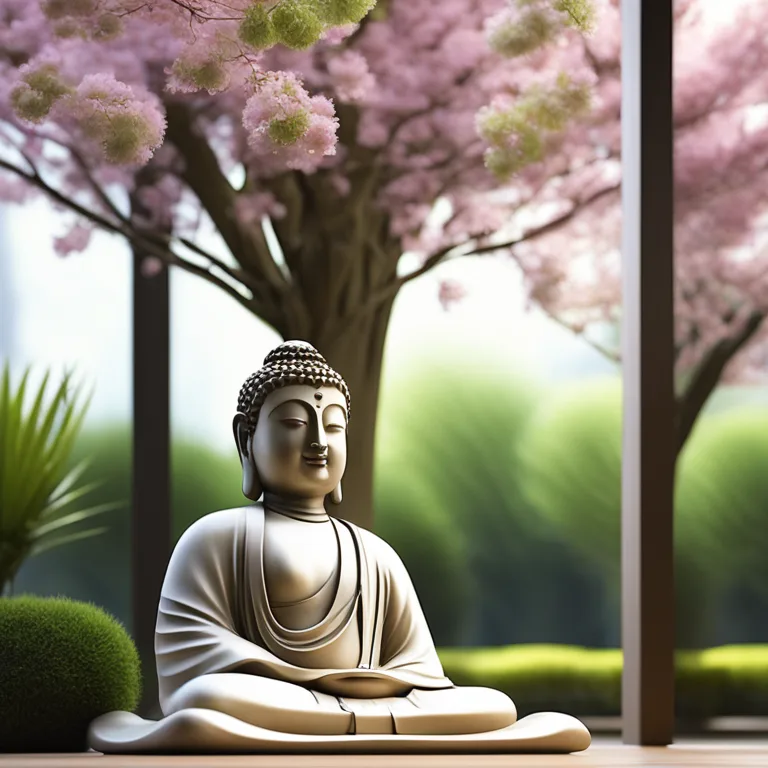
Harmonize Your Group Meditation: Essential Practices
Discover key strategies to elevate your group meditation sessions and foster an environment that nurtures collective mindfulness and serenity.
article by Hina Kurosawa
Establishing a Welcoming Space
When launching a meditation group, the ambiance of your meeting place is crucial. Choose a location that is free from noisy distractions and is accessible to all participants. Invest in comfortable seating or invite members to bring their own meditation cushions. Soft, neutral colors and natural elements can help create a serene atmosphere. Encourage members to arrive a few minutes early to settle in and adjust to the tranquility of the space. Keep the temperature moderated so that it's neither too hot nor too cold, as physical discomfort can distract from the meditative experience.

Creating a Consistent Schedule
Consistency is key in cultivating a dedicated meditation practice. As the organizer, provide a regular schedule that members can easily remember and commit to, such as weekly sessions at consistent times. This not only aids in building a routine but also reinforces the group's commitment to their meditation journey. Communicate any changes well in advance to ensure that group members can adjust their personal schedules accordingly.

Guiding Meditation with Purpose
Whether you are leading the meditations yourself or inviting guest facilitators, it's imperative that guided sessions have clarity and intention. Structure the sessions with an opening that sets the focus, followed by a period of guided meditation, and closing remarks that help transition participants back to their routine. Use clear, gentle directives, and remember to hold space for silence, which can be just as powerful as any guidance.

Fostering Inclusivity and Open-Mindedness
A meditation group flourishes when all members feel welcomed and respected. Foster a culture of inclusivity by encouraging participants to share their experiences and perspectives, while remaining open-minded to the diverse set of beliefs that individuals may bring to the group. Emphasize that there's no right or wrong way to meditate and that each person's journey is unique and personal.

Incorporating Diverse Meditation Practices
The world of meditation is rich with various techniques and practices. To appeal to a wider audience and to cater to different levels of experience, consider incorporating a range of meditation styles, from mindfulness to visualization, or even moving meditations like walking meditation or Tai Chi. This approach not only makes sessions more engaging but also educates members about the breadth and depth of meditative practices.
Integrating Technology Mindfully
With advancements in technology, the traditional meditation experience has expanded. Utilize apps, guided meditation recordings, or even virtual reality environments to enrich your sessions. However, do so mindfully and ensure that the use of technology enhances rather than detracts from the peaceful ambiance and the goals of your meditation group.
Maintaining Growth and Evolution
As time progresses, so should your meditation group. Collect feedback regularly from participants about what works well and what could be improved. Stay informed about the latest trends and research in meditation to introduce new ideas and maintain engagement. Lastly, celebrate the milestones and successes of your group, no matter how small, to maintain a sense of progress and community achievement.
Published: 1/8/2024
Modified: 1/8/2024
More predictions
Come back here soon to learn more about yourself and your future


Meditation: Finger Techniques Explored
Discover the art of finger meditation to harmonize body, mind, and spirit through ancient practices for modern wellness.


Mindful Meditation Practices Explained
Discover techniques to enhance your mindfulness through meditation, fostering peace and clarity in your daily life.


Diverse Meditation Techniques
Explore various meditation methods to enhance your mental clarity, emotional balance, and spiritual insight.